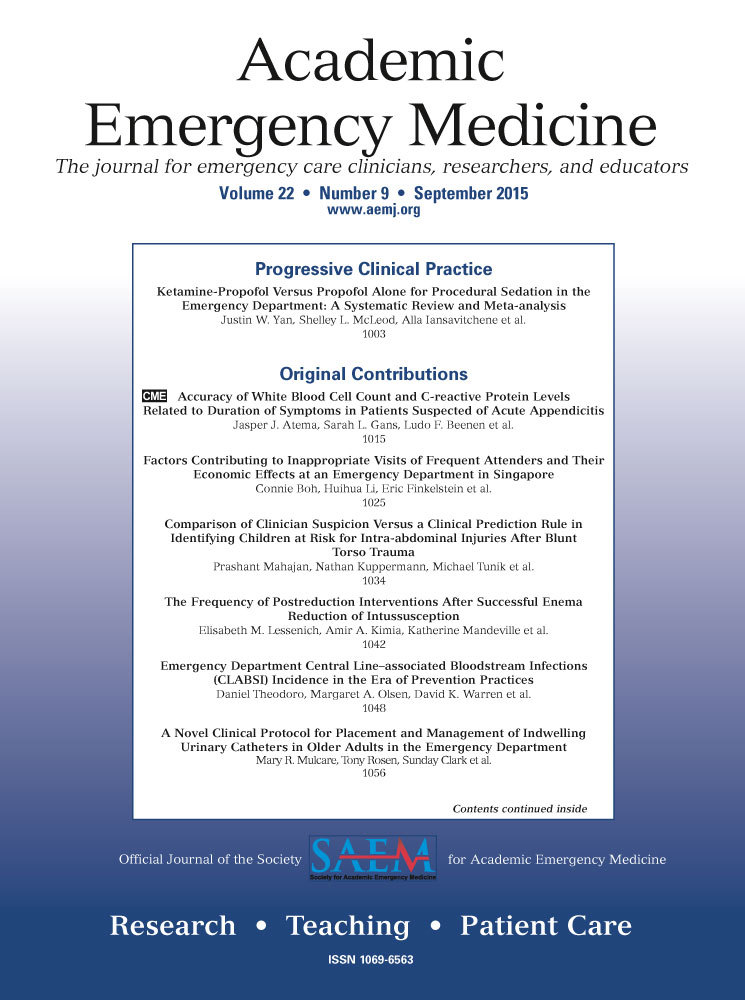Qualitative Research in Emergency Care Part I: Research Principles and Common Applications
Abstract
enQualitative methods are increasingly being used in emergency care research. Rigorous qualitative methods can play a critical role in advancing the emergency care research agenda by allowing investigators to generate hypotheses, gain an in-depth understanding of health problems or specific populations, create expert consensus, and develop new intervention and dissemination strategies. This article, Part I of a two-article series, provides an introduction to general principles of applied qualitative health research and examples of its common use in emergency care research, describing study designs and data collection methods most relevant to our field, including observation, individual interviews, and focus groups. In Part II of this series, we will outline the specific steps necessary to conduct a valid and reliable qualitative research project, with a focus on interview-based studies. These elements include building the research team, preparing data collection guides, defining and obtaining an adequate sample, collecting and organizing qualitative data, and coding and analyzing the data. We also discuss potential ethical considerations unique to qualitative research as it relates to emergency care research.
Resumen
esInvestigación Cualitativa en Atención de Urgencias y Emergencias Parte I: Los Principios de Investigación y las Aplicaciones Comunes
La metodología cualitativa está incrementándose en la investigación de la atención en urgencias y emergencias. La metodología cualitativa rigurosa puede jugar un papel fundamental en el avance de la agenda de investigación en atención urgente y emergente, ya que permite a los investigadores generar hipótesis, ganar profundidad en el entendimiento de los problemas de salud o en poblaciones específicas, crear consensos de expertos y desarrollar nuevas estrategias de intervención y diseminación. Este artículo, primera parte de una serie de dos, proporciona una introducción de los principios generales de la investigación sanitaria cualitativa aplicada y ejemplos de su uso frecuente en la investigación de la atención de urgencias y emergencias. Describe los diseños de estudios y métodos de recogida de datos más relevantes en nuestro campo, incluyendo la observación, y entrevistas individuales y centradas en grupos. En la segunda parte de esta serie, destacaremos los pasos específicos necesarios para conducir un proyecto de investigación cualitativa realizable y válido, centrado en estudios basados en entrevistas. Estos elementos incluyen la creación de un equipo de investigación, la preparación de las guías de recogida de datos, la definición y obtención de una muestra adecuada, la recogida y organización de los datos cualitativos, y la codificación y análisis de los datos. Se discutirán las consideraciones éticas potenciales específicas para la investigación cualitativa, ya que se relaciona con la investigación en la atención de urgencias y emergencias.




